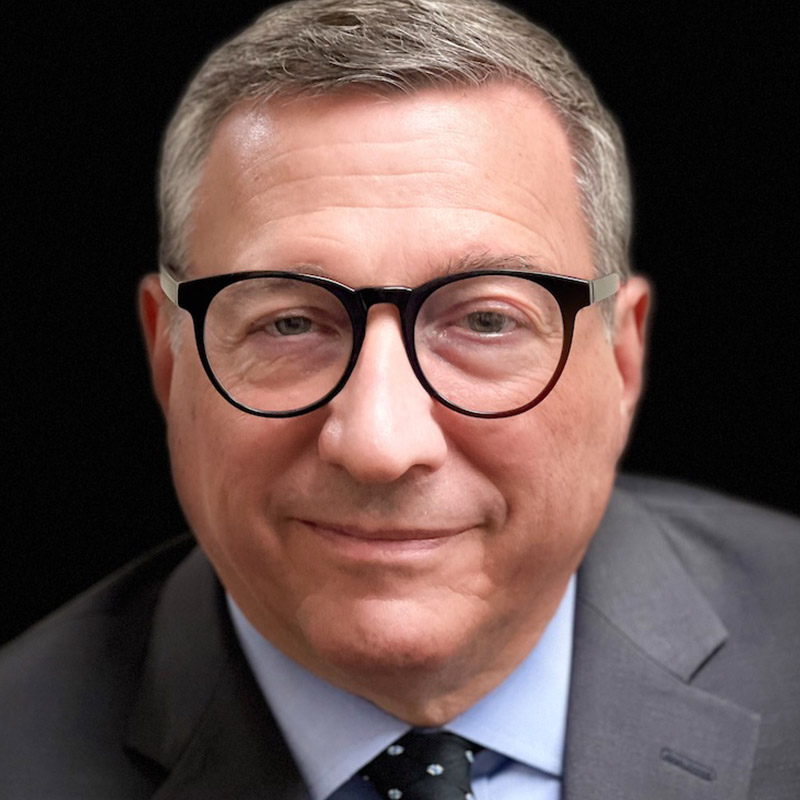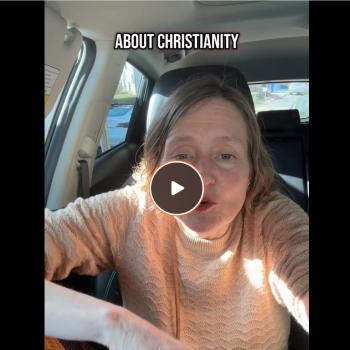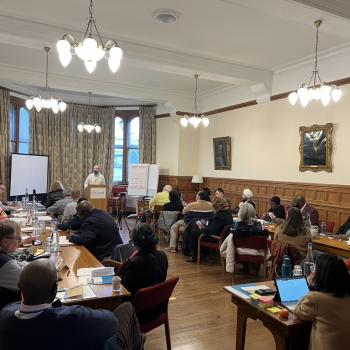
I’m biased and judgemental. There, I said it–and I feel crappy about it.
Yes, I am becoming increasingly conscious of how much I judge others, especially now.
Too Easy To Judge
It’s too easy to judge others. At a time when American society is riven by social, political, and racial tensions, it’s reflexive. We do it when we jump to conclusions, blameshift, and engage in stereotyping regarding others who are unlike us. To all that, I plead, “Guilty!”
I’ve been thinking about this because of a photo texted to me by a chaplain who ministers to aging veterans. In it, a parade of rough-looking, chubby, older white guys sit on motorcycles (mostly Harleys) behind one leather-vested and sun-glassed sentry standing next to an American flag.
Looking down at the image on my phone, my arrogance, sense of superiority, elitism, and prejudices kicked in: “Probably a bunch of MAGA Trump sycophants,” I thought. Then I received a second text explaining the scene–and it told a very different story.
Shame on me.
Shame. On. Me.
As I said, it’s just too easy to judge others.
Goodness Comes In All Kinds Of Packaging
The bikers were not at all what I thought–and they weren’t engaging in political agitation. Instead, they were there as a kind of honor guard.
The group represented the American Legion Riders, motorcycle enthusiasts associated with the American Legion, a volunteer organization whose mission is “To enhance the well-being of America’s veterans, their families, our military, and our communities by our devotion to mutual helpfulness.”
The chaplain took the photo at the entrance to a national cemetery where he was about to conduct a funeral. He later called to tell me the story of the veteran he buried that day.
Fred was 92 and had lived alone in a house he could no longer maintain. Though he had enjoyed a storied career–and some fame–as a popular radio talk show host, Fred had grown more lonely and isolated in his latter years.
With his family living far from him and unable to travel, Fred had only two real sources of support–my colleague, a chaplain at the nearby veteran’s hospital, and his Mennonite next-door neighbors. The chaplain regularly visited the earnest Catholic Fred and brought him communion. The family next door provided rides when Fred visited the doctor or the hospital. The pacifist Mennonites next door also escorted their neighbor, who used a wheelchair, to the airport when he finally agreed to go live with a relative in Florida.
Not long after he relocated south, Fred died.
Having outlived many of his friends and with his notoriety long behind him, there was little chance anyone would show up at Fred’s graveside service when his cremains returned to Pennsylvania for interment. The chaplain worried he’d be the only one there. Well, no doubt those Mennonite neighbors would come, but who else? But when he drove up to the cemetery, he saw the dignified line of flag-waving Legionnaires. They were there to honor Fred. The chaplain had to wipe away his tears.
I’ve got to say, as I studied the photo again–this time knowing what was behind it–I had my own very emotional moment.
Selflessness In Uniform
In many Veterans Day and Memorial Day sermons, I had compared our military men and women as consummate examples of Jesus’ words when he said, “Greater love has no one than this: to lay down one’s life for one’s friends.” When they swear their oath and don their uniform, these remarkable people give up substantial personal liberties to ensure the freedoms of others–and they stand ready to give their lives to protect the safety and security of others.
Many veterans return from the battlefield but are not always physically or mentally whole. So, fellow veterans, like the bikers lined up at the cemetery, organize themselves to help their own find wholeness–even if it only means a respectful send-off at the graveyard.
In penance for my earlier dismissal of this kind, caring, and generous souls, I took some time to look at what they do to improve the world–and it’s a lot. American Legion members perform over four million hours of community service annually, and over 30,000 volunteer at VA health centers each year. Last year, members recruited some 80,000 donated units of blood through local American Legion programs. And the biggest “we’ll tell you” was what I read about those crusty riders–they raise nearly a million dollars yearly to put the kids of wounded and killed military members through college. (Typing this, I’m choking up again.)
Where The Rubber Meets The Road
One particularly moving bit of information I came across during my Internet-based act of contrition was about another equally impressive bike club, the Combat Veterans Motorcycle Association (CVMA), specifically Chapter 22-5, based in Jonestown, Pennsylvania. Just perusing their Facebook page, the list of their good deeds towards others had me undone. One was the presentation of house keys to a specially adapted custom home built for a severely wounded U.S. Marine corporal. (Man, I’m pulling tissues again!)
In my uplifting search, the pièce de résistance was the music video that plays when you visit the CMVA website—entitled “I’m Not Home,” but known better as the “Homeless Veteran PTSD Song.” Veterans advocate Laura McCall Torno, her producer husband Earl Torno, and singer-songwriter Joe Hash collaborated on the heart-wrenching ballad.
As I watched the video (while blubbering), my mind returned to hundreds of encounters with homeless veterans on the streets of Washington, DC. I found that giving out cash wasn’t the best way to help, so I typically invited them to be my guests for a meal or just a cup of coffee. Then, I would listen to their stories before exploring how best to meet their needs. If you listen to Joe Hash sing the PTSD song, as I did, you’ll understand why I had to leave my desk and take a breather outside to collect myself.
They’re Doing Their Part–let’s Do Ours
Once I regained my composure, I looked for the best way to meet the needs of the bikers at that cemetery who powerfully meet the needs of veterans who so badly need the bikers. The short answer, in this case, is cash. I donated to the American Legion Riders and the Combat Veterans Motorcycle Association–and I hope you’ll consider doing the same.
God rest Fred’s soul–and God bless those gnarly bikers!
(Oh, and PS: God, please help me–and all of us–to purge our ugly judgmentalism.)
*If you like this article please leave a comment below, I am very interested in your thoughts on this topic.














